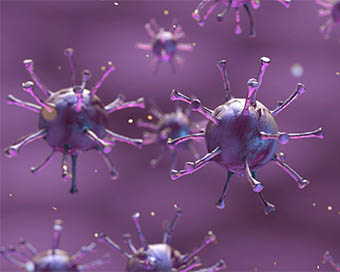Gallery
 PM Modi visit USA
PM Modi visit USA Only the mirror in my washroom and phone gallery see the crazy me : Sara Khan
Only the mirror in my washroom and phone gallery see the crazy me : Sara Khan Karnataka rain fury: Photos of flooded streets, uprooted trees
Karnataka rain fury: Photos of flooded streets, uprooted trees Cannes 2022: Deepika Padukone stuns at the French Riviera in Sabyasachi outfit
Cannes 2022: Deepika Padukone stuns at the French Riviera in Sabyasachi outfit Ranbir Kapoor And Alia Bhatt's Wedding Pics - Sealed With A Kiss
Ranbir Kapoor And Alia Bhatt's Wedding Pics - Sealed With A Kiss Oscars 2022: Every Academy Award Winner
Oscars 2022: Every Academy Award Winner Shane Warne (1969-2022): Australian cricket legend's life in pictures
Shane Warne (1969-2022): Australian cricket legend's life in pictures Photos: What Russia's invasion of Ukraine looks like on the ground
Photos: What Russia's invasion of Ukraine looks like on the ground Lata Mangeshkar (1929-2022): A pictorial tribute to the 'Nightingale of India'
Lata Mangeshkar (1929-2022): A pictorial tribute to the 'Nightingale of India' PM Modi unveils 216-feet tall Statue of Equality in Hyderabad (PHOTOS)
PM Modi unveils 216-feet tall Statue of Equality in Hyderabad (PHOTOS)Hockey India has announced a 54-member core probable squad for the upcoming senior men’s
- Satwik-Chirag return as BAI names 14-strong squad for BWF Sudirman Cup Finals 2025
- Men’s Sr Hockey Nationals to be played in division-based format from April 4
- Mensik denies Djokovic 100th title in Miami final
- KIPG: Son of a vegetable vendor, Bihar’s Jhandu Kumar eyes Worlds, 2028 Paralympics
- Hardik Singh credits hard work and team unity for receiving HI Midfielder of the Year award
Experimental COVID-19 vaccine prevents severe disease in mice Last Updated : 13 Aug 2020 09:05:20 PM IST 
file photo An experimental vaccine is effective at preventing pneumonia in mice infected with the COVID-19 virus, according to a study.
The vaccine, which is made from a mild virus genetically modified to carry a key gene from the Covid-19 virus, is published in the journal Cell Host and Microbe. "Unlike many of the other vaccines under development, this vaccine is made from a virus that is capable of spreading in a limited fashion inside the human body, which means it is likely to generate a strong immune response," said study author Michael S. Diamond from the Washington University."Our vaccine candidate is now being tested in additional animal models with the goal of getting it into clinical trials as soon as possible," Diamond added. According to the study, the research team created the experimental vaccine by genetically modifying vesicular stomatitis virus (VSV), a virus of livestock that causes only a mild, short-lived illness in people. They swapped out one gene from VSV for the gene for a spike from SARS-CoV-2, the virus that causes Covid-19. The hybrid virus is called VSV-SARS-CoV-2. Spike protein is thought to be one of the keys to immunity against Covid-19.The Covid-19 virus uses spike to latch onto and infect human cells, and the human body defends itself by generating protective antibodies targeting spike. By adding the gene for spike to a fairly harmless virus, the researchers created a hybrid virus that, when given to people, ideally would elicit antibodies against spike that protect against later infection with the Covid-19 virus. As part of this study, the researchers injected mice with VSV-SARS-CoV-2 or a lab strain of VSV for comparison.A subgroup was boosted with a second dose of the experimental vaccine four weeks after the initial injections. Three weeks after each injection, the researchers drew blood from the mice to test for antibodies capable of preventing SARS-CoV-2 from infecting cells. They found high levels of such neutralising antibodies after one dose, and the levels increased 90-fold after a second dose. Then, the researchers challenged the mice five weeks after their last dose by spraying the Covid-19 virus into their noses. The vaccine completely protected against pneumonia.At four days post-infection, there was no infectious virus detectable in the lungs of mice that had been given either one or two doses of the vaccine. In contrast, mice that had received the placebo had high levels of virus in their lungs. In addition, the lungs of vaccinated mice showed fewer signs of inflammation and damage than those of mice that had received the placebo. "The experimental vaccine is still in the early stages of development," the study authors noted.IANS Washington For Latest Updates Please-
Join us on
Follow us on








172.31.16.186







